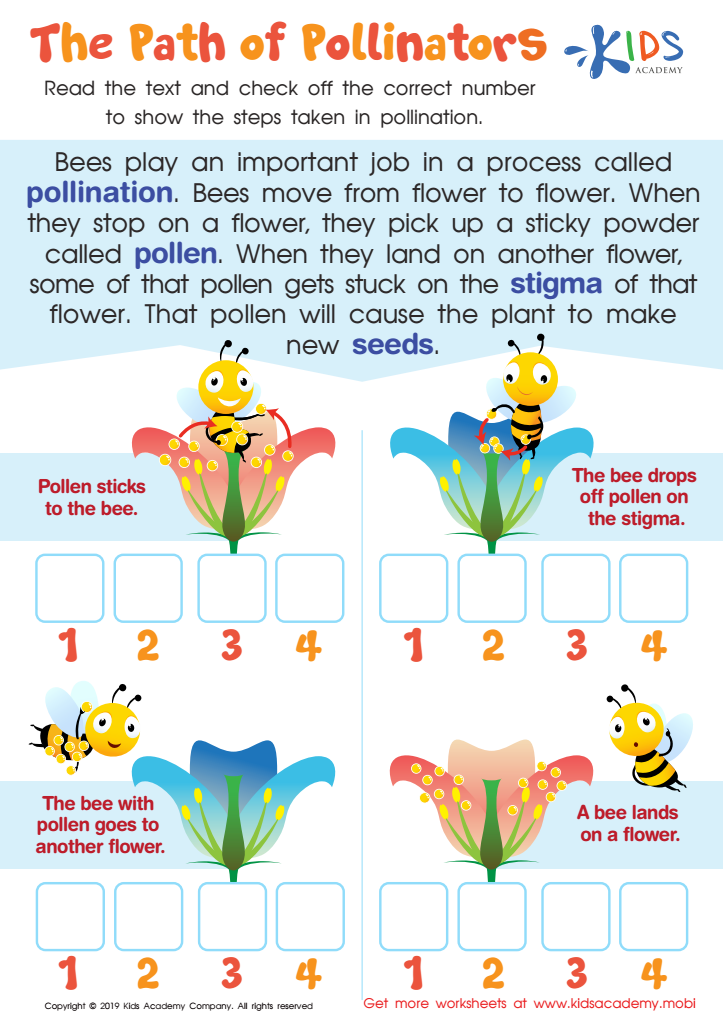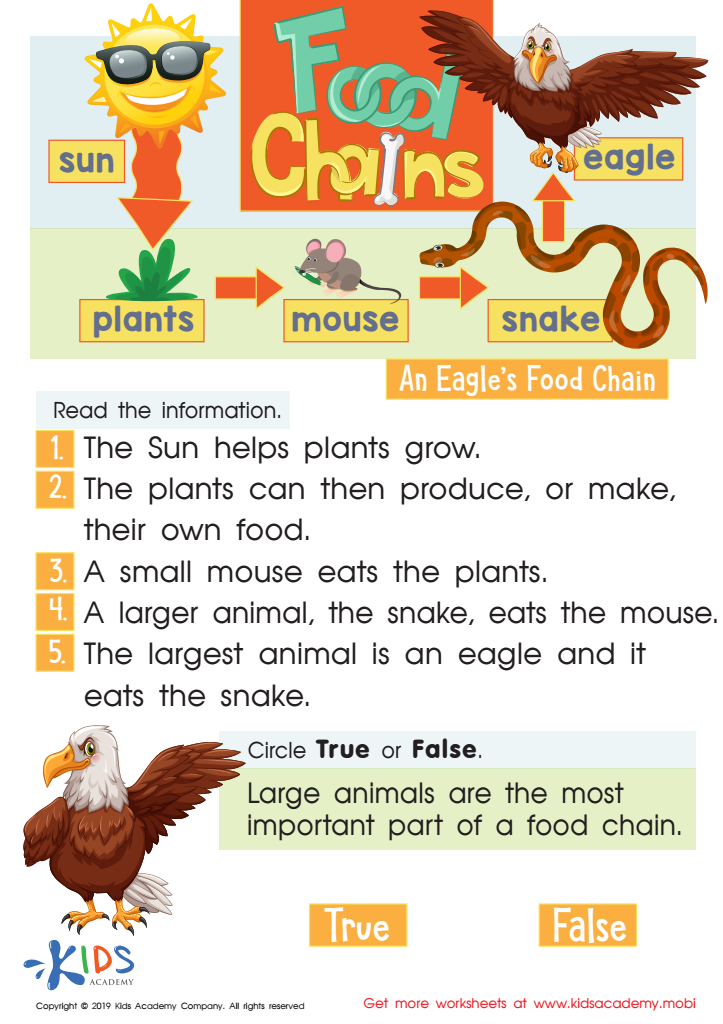Learning about ecosystems Normal Science Worksheets for Ages 6-9
3 filtered results
-
From - To
Discover the fascinating world of ecosystems with our engaging science worksheets designed for children ages 6-9. These meticulously crafted resources introduce young learners to various ecosystems, their inhabitants, and the intricate relationships within them. Through vibrant illustrations and simple explanations, kids will explore concepts like food chains, habitats, and the roles different organisms play in their environments. Our worksheets foster critical thinking, curiosity, and a love for nature, helping children develop essential scientific skills. Perfect for home or classroom use, these activities make learning about ecosystems an exciting and educational adventure. Unleash your child’s inner scientist today!


Pollinator Positions Worksheet


The Path of Pollinators Worksheet


Food Chains Worksheet
Learning about ecosystems is fundamental for young children, ages 6-9, because it fosters a sense of curiosity and respect for the natural world. When parents and teachers introduce children to the basics of ecosystems, they cultivate an early appreciation for the interconnectedness of all living things. This understanding can lead to the development of environmentally conscious behavior and a sense of responsibility towards conservation.
At its core, learning about ecosystems helps children understand how plants, animals, and their environments interact and depend on each other. This knowledge can be exciting and engaging for young minds eager to explore the world around them. Lessons on ecosystems incorporate a variety of subjects, including science, geography, and even mathematics, providing a comprehensive learning experience that builds critical thinking skills.
Furthermore, early exposure to ecosystem concepts helps children grasp more complex scientific theories as they grow older. It lays the foundation for future studies in biology, ecology, and environmental science. By making connections between their immediate surroundings and larger ecological concepts, children develop keen observation skills and a better understanding of cause-and-effect relationships in nature.
For parents and teachers, instilling a love of nature and knowledge about ecosystems at a young age helps cultivate mindful, informed future stewards of our planet. Engaging with these topics early on supports not only academic growth but also a lifelong respect and care for the world we live in.
 Assign to My Students
Assign to My Students



















